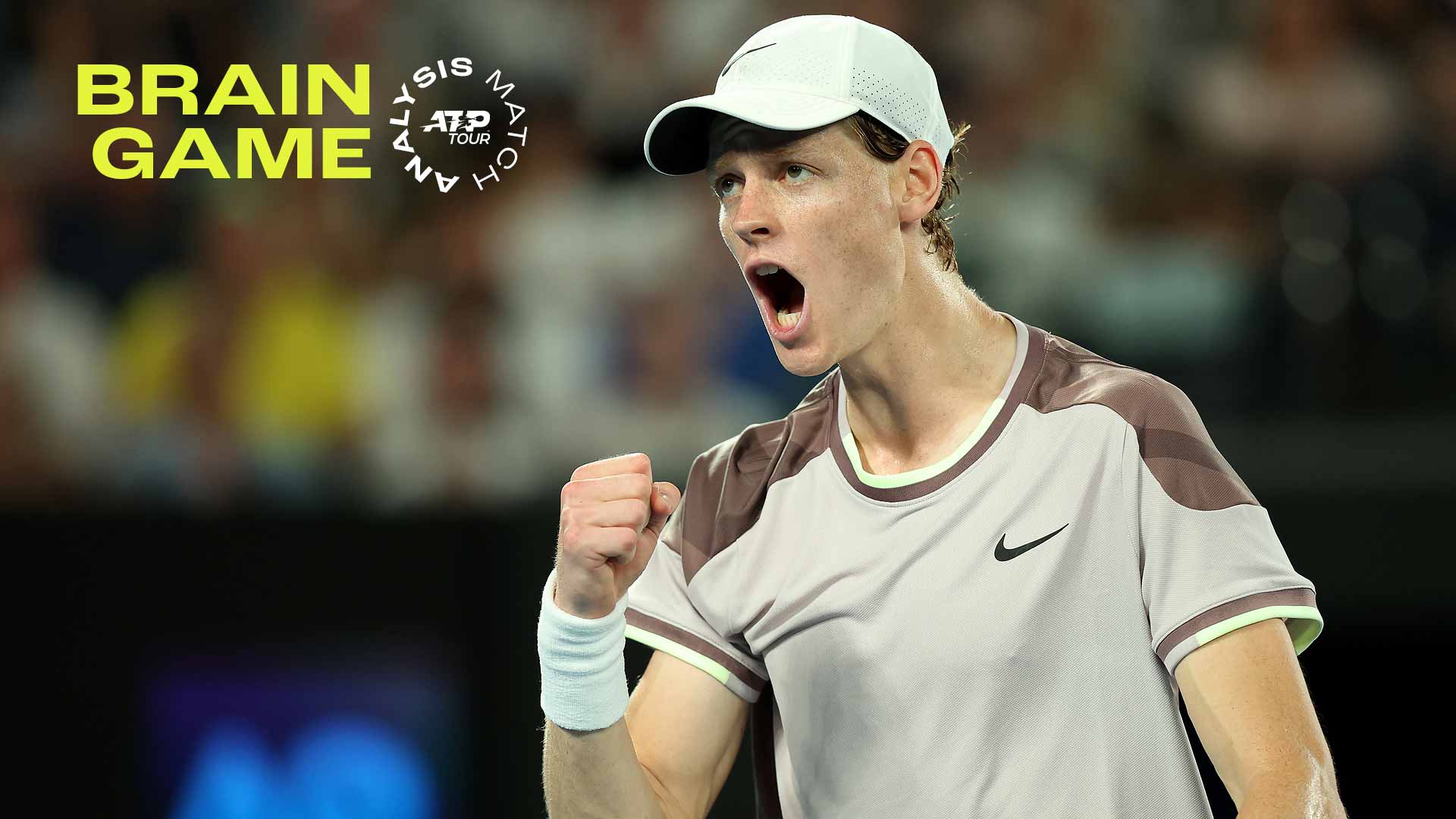

Daniil Medvedev led Jannik Sinner 6-3, 5-1, 15/15 on serve. Until this innocuous moment, he was in complete control of the Australian Open men’s singles final.
Medvedev then dumped a Serve +1 forehand in the net, and things started sliding away from him in a hurry. His 22-year-old Italian opponent never looked back to record a 3-6, 3-6, 6-4, 6-4, 6-3 victory to notch his first Grand Slam title.
Medvedev barely held on to win the second set, with the writing on the wall in the last couple of games of set two. Sinner suddenly found his mojo and wasn’t missing. In the blink of an eye, Medvedev went from dominating rallies to barely hanging on in the point. Sinner finally relaxed enough to hit the ball. Medvedev never found that freedom again in the match.
Baseline Points Won
Sinner started slowly in the critical baseline exchanges and always looked to be the one trying to force a shot into a location where it didn’t really belong. Then, all of a sudden, things flipped, and you got the feeling that Sinner couldn’t miss, and Medvedev was just a shot away from dumping a groundstroke into the net.
Baseline Points Won Per Set
Your 𝟐𝟎𝟐𝟒 𝐀𝐮𝐬𝐭𝐫𝐚𝐥𝐢𝐚𝐧 𝐎𝐩𝐞𝐧 𝐂𝐡𝐚𝐦𝐩𝐢𝐨𝐧 🏆 @AustralianOpen | #AusOpen | @janniksin pic.twitter.com/2BKSVFxMZX
— ATP Tour (@atptour) January 28, 2024
Sinner got crushed from the back of the court for two sets, winning just 38 per cent (28/74) of baseline exchanges. And just like a light switch was flipped, he found the right speed, height, spin and depth that was required to make Medvedev uncomfortable from the trenches. Sinner won 38 per cent of groundstroke points in the first two sets, but managed to win 63 per cent (45/72) in the last two.
Sinner went from missing a lot in the first two sets to almost couldn’t miss in the last three.
Rally Length
Sinner underperformed in short rallies of 0-4 shots in the first two sets, winning just 43 per cent (24/56). It felt like he always had a chance to miss the court, while Medvedev played rock solid, prowling the baseline. Then, in the third set, things wildly changed for the Italian, as he won 61 per cent (22/36) of critical short rallies in 0-4 shots. Over the last three sets, Sinner won a remarkable 58 per cent (56/97) of short rallies to run away with the title.
The average rally length for the match was a lengthy 5.57 shots. Sinner struggled mightily in this area for almost two sets and then basically couldn’t miss in the three most important sets of his life.
Forehands vs. Backhands
Sinner’s forehand started slow, with just five winners in the first two sets while contributing 17 errors. It then caught fire in set three, amassing 17 winners and 26 errors over the remaining three sets.
In stark comparison, Medvedev accumulated eight forehand winners in the first two sets, but only managed five over the remaining three sets. Medvedev hit eight backhand winners for the match, while Sinner managed five. This match developed into a contest where both players tried to play aggressively from the back of the court, where not missing took precedence over cracking a winner.
Overall, Sinner won just one more point than Medvedev for the match (142-141). But that’s not how it felt. Medvedev dominated the first 85 minutes of the contest to win the first two sets. Sinner took a stranglehold on the remaining 139 minutes to win the title.
It’s not how fast you start. It’s how strong you finish.